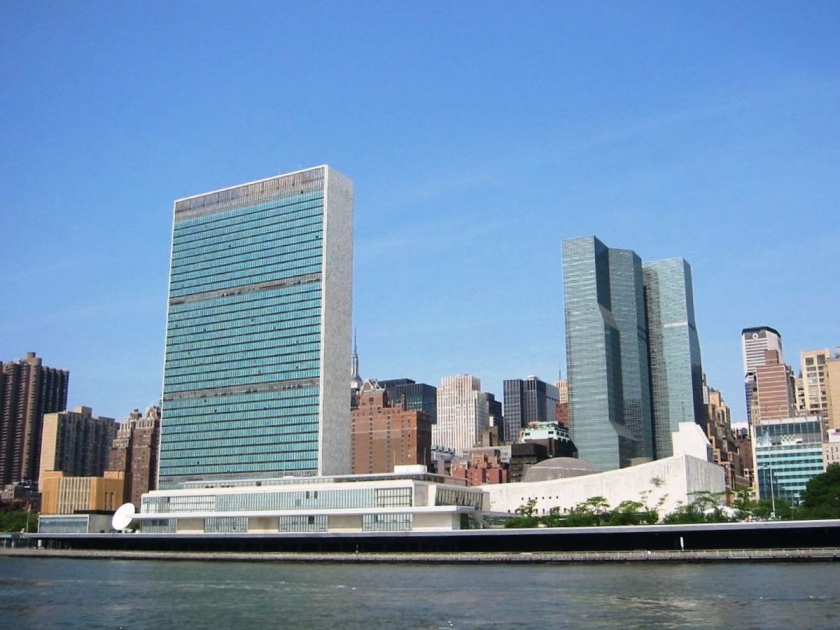Statement by representative of the Russian Federation Ms.Nadezhda Sokolova at UNSC Arria meeting "Responsibility and Responsiveness of States to Cyberattacks on Critical Infrastructure"
Colleagues,
Russia was among the pioneers of the multilateral discussion of international information security (IIS). Back in 1998, we raised this issue at the UN General Assembly and ensured that it was included on its agenda on a permanent basis. For almost 25 years by now, we have co-sponsored the corresponding UNGA resolution that is adopted annually with broad support of member-states. On our initiative, first a Group of Governmental Experts on IIS was created, followed by an inclusive Open-Ended Working Group.
May I remind that our Western colleagues opposed these initiatives for a long time. First they were up against the Group of Governmental Experts, and then in the General Assembly they consistently voted against the initiative to establish the OEWG. While making up spoilers to the Russian initiatives, they split the General Assembly, which had been united on the issue of IIS for decades.
Among those countries were the organizers of this Arria meeting. All proposed topics for discussion are considered by UNGA plenary. This is happening as we speak in the chamber next to this one, where an OEWG meeting is in progress. Why not raise it there, at a specialized platform? Our Brazilian colleagues also spoke about it today. In the General Assembly, all 193 UN member states have an opportunity to exchange views equally on a wide range of issues, including all sorts of threats pertaining to IIS; rules, norms and principles of responsible behavior of states; applicability of international law to the area of ICTs and other aspects that the organizers of this event flagged as important. By the way, when quoting, our Western colleagues deliberately distorted some conclusions of the specialized mechanisms, first of all as regards alleged full applicability of international law to the information space. The international community has not developed a shared understanding how exactly the international law should apply to the ICT area. This is what the discussions in the OEWG are about. Apparently, the United States and its allies do not care either for practical steps that have been made in order to create a peaceful and safe information environment or for the views of other countries in this regard. All they need is a political and propaganda effect.
In this context, we are not surprised by the attempts of Western delegations to blame Russia for all “cybersins” while shifting responsibility.
Their goal is quite obvious – to cover up for their own aggressive steps in information space. High-ranking officials in the West openly speak of conducting cyber offensives against our country. They do not shy away from saying such things and even brag about them. I will give a few examples.
As reported by the Russian Federal Security Service, since the beginning of 2022, more than 5,000 hacker attacks against Russian critical infrastructure have taken place. The territory of Ukraine serves as a springboard and testing site for new versions of malware. For that purpose, Ukraine receives the financing, personnel training, and technical assistance in building up its offensive capacity. At the same time, Western sponsors of the Kiev regime turn a blind eye to the fact that "ITArmy of Ukraine" that they helped to create now begins to commit crimes against their own citizens. We are aware that the United States frequently “collaborates” with international hacker teams.
We fend off those attacks effectively. However, any country of the world can fall prey to such US aggression in the ICT area. One does not have to look far for examples of Washington's meddling in the internal affairs of other countries - even its allies, who prefer to remain meekly silent. The world is well aware of the revelations of Edward Snowden. US intelligence agencies have established a global system for the use of spyware and the interception of personal data. In February of this year, the Biden Administration extended the Foreign Intelligence Surveillance Act, which allows the United States to conduct unlimited electronic surveillance and interception of personal data around the world in violation of fundamental rights and freedoms.
Russia firmly opposes the so-called "rules-based order" in the information space, which in fact means "might is right”. We continue to make vigorous efforts to form a peaceful, safe and fair ICT environment, which should protect the interests of all states, regardless of their level of development.
We have consistently advocated the adoption of a universal legally binding instrument on the use of ICTs. Together with co-sponsors, we have submitted to the General Assembly the concept of a UN convention on international information security. We have proposed an initiative for a global register of ICT focal points, which would help to reduce digital tensions, build confidence and forge contacts between the competent agencies of States. We look forward to early agreement on its parameters within the OEWG and welcome the active efforts made to that end by its Chair, Singapore's Permanent Representative Burhan Gafoor.
Colleagues,
No matter how much Western countries try to pose as champions of IIS, I think it is obvious that they are simply exploiting this topic in their self-interest, while trying to keep a "free hand”. Russia will continue to defend the principles of building a peaceful and safe ICT environment globally. We are ready to cooperate to this end with all states who approach this constructively.
Thank you.
